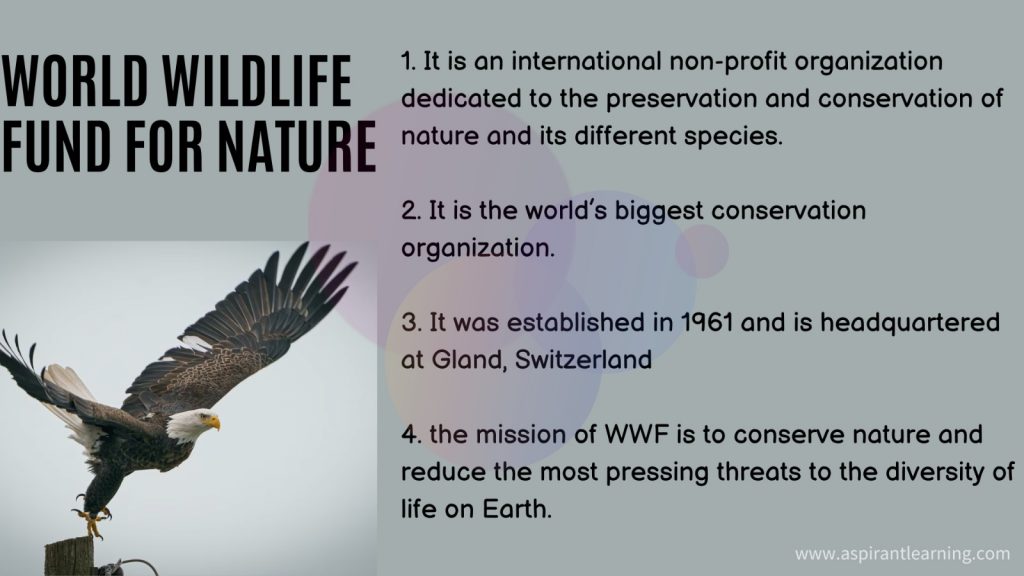News Highlights:
- The world-renowned Indian sand artist and Padma Shri Awardee Sudarsan Pattnaik spread the message of Earth Hour 2023 using his sustainable sand art at Puri beach.
- Earth Hour 2023 will be celebrated on 25th March worldwide from 8:30 pm.
Earth Hour:
- About
- Earth Hour is the World Wildlife Fund for Nature (WWF)’s annual initiative that began in 2007.
- The idea is to refrain from the use of non-essential lighting to save energy in a symbolic call for environmental protection.
- Date and time:
- It is held every year on the last Saturday of March.
- It encourages people from more than 180 countries to switch off the lights from 8.30 pm to 9.30 pm as per their local time.
- Objectives and Significance:
- Earth Hour aims to increase awareness and spark global conversations on protecting nature, tackling the climate crisis, and working together to shape a brighter future for humans.
- It calls for the world to unite in a moment of solidarity for people and the planet.
- The practice has become a catalyst for dramatic change and collective action towards protecting the environment.
- The symbolic lights-out Earth Hour has become the world’s largest grassroots movement to raise awareness about climate change and energy conservation and to assure a sustainable, brighter future.
- History:
- The event was first introduced in Sydney, Australia, in 2007 by WWF and its partners as a symbolic lights-out event to raise awareness about climate change.
- The first Earth Hour was held on March 31, 2007, at 7:30 pm local time, in which around 2.2 million people in Sydney participated.
- The following year, Earth Hour was held internationally for the first time, with more than 50 million people from 35 countries taking part.
- Since then, the event has grown in popularity and has become a global phenomenon, with millions of people from over 190 countries participating.

What is Energy Conservation?
- About:
- It refers to the efforts made to ensure that energy is used efficiently by either using less energy for a particular constant purpose – like switching off lights and fans when not being used – or reducing the use of a particular service that uses energy – like driving less and using public transport instead.
- Energy conservation is a conscious, individual effort, and at a macro level, it leads to energy efficiency.
- The end goal of energy conservation is to reach sustainable energy.
- It is different from the term ‘energy efficiency’, which is using technology that requires less energy to perform the same function.
- Benefits of Conservation of Energy:
- It saves the cost and lowers your utility bills.
- Prolongs the existence of fossil fuels.
- Protects the environment.
- Reduces pollution.
Initiatives related to Energy Conservation:
- Perform Achieve and Trade Scheme (PAT)
- It is a market-based mechanism to enhance the cost-effectiveness in improving Energy Efficiency in Energy Intensive industries through certification of energy saving, which can be traded.
- Standards and Labeling:
- The scheme was launched in 2006 and is currently invoked for equipment/appliances.
- Energy Conservation Building Code (ECBC):
- It was developed for new commercial buildings in 2007.
- Demand Side Management:
- It is the selection, planning, and implementation of measures intended to have an influence on the demand or customer side of the electric meter.
- International Energy Agency (IEA):
- It works with countries around the world to shape energy policies for a secure and sustainable future.
- India is not a member country but an association country.
- However, IEA has invited India to be a full-time member.
- Sustainable Energy for All (SEforALL):
- It is an international organisation that works in partnership with the United Nations and leaders in government, the private sector, financial institutions and civil society to drive faster action towards the achievement of Sustainable Development Goal 7 (SDG7) – access to affordable, reliable, sustainable and modern energy for all by 2030 – in line with the Paris Agreement on climate.
- Paris Agreement:
- It is a legally binding international treaty on climate change.
- Its goal is to limit global warming to well below 2, preferably to 1.5 degrees Celsius, compared to pre-industrial levels.
Pic Courtesy: Freepik
Content Source: The Indian Express



